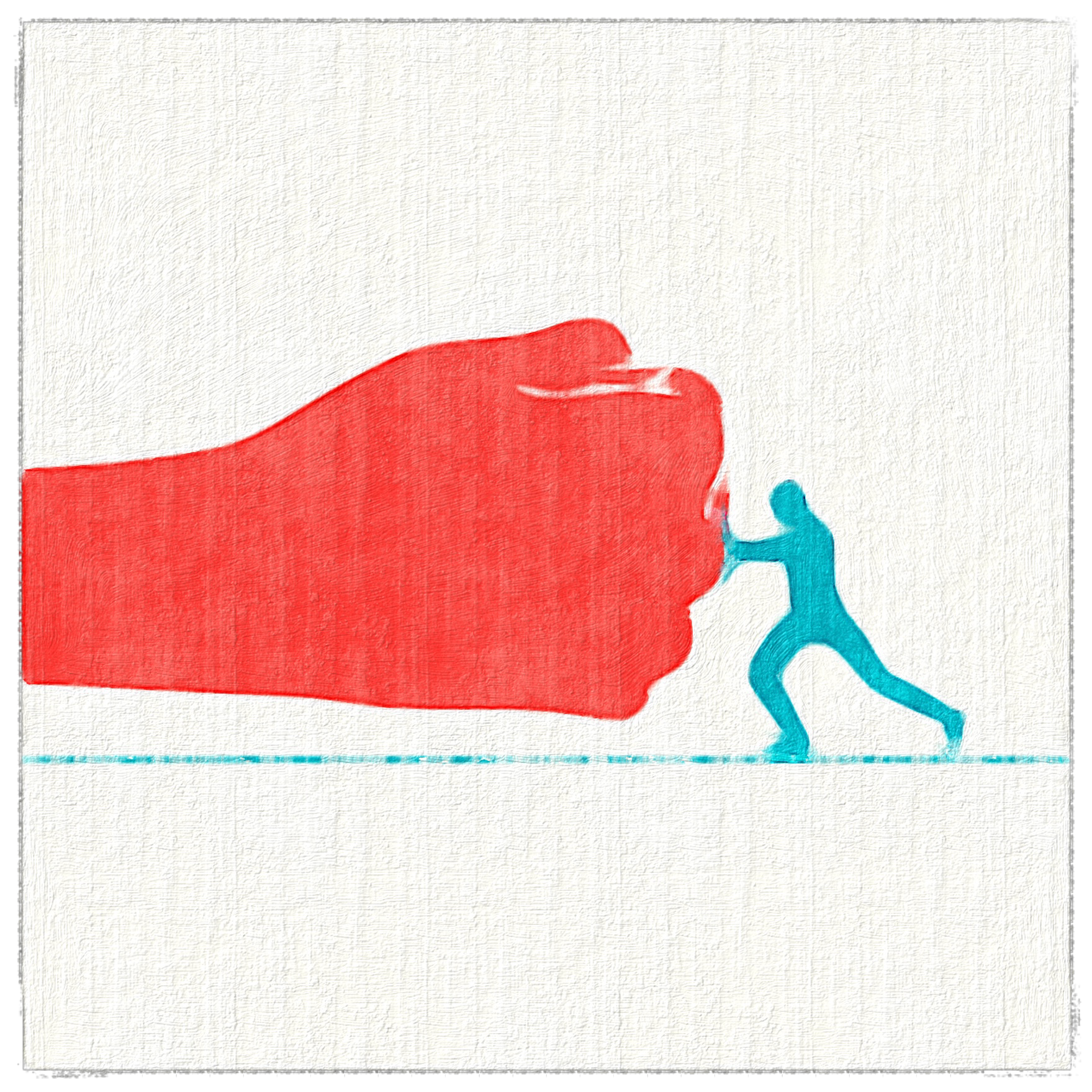 As a caregiver, one question that can arise is, how do I make space for all the thoughts and emotions I’m experiencing AND have room for other stuff, too?
As a caregiver, one question that can arise is, how do I make space for all the thoughts and emotions I’m experiencing AND have room for other stuff, too?
One of the ways we do this is through awareness, observing what’s happening in the moment, and doing our best to accept what is — if only for just that moment.
But what about when resistance rears its head?
For instance, if we’re experiencing worry about the person we are a caregiver for it’s easy to start feeling resistance to what is … specifically, whatever is ailing them.
Let’s use my wife’s health as an example. I often experience worry about her health, as well as resistance that she’s sick. Notice how I describe this as “experiencing,” these things. One way of creating space between thoughts and emotions is to acknowledge that these thoughts and emotions are not us — they are something we experience. Just like you are not the cold if you go outside in the dead of winter. You experience the cold, and you are not it.
So resistance can easily push us away from accepting what is. It can also put us in a place where we are not fully in the moment.
One way to look at resistance is, it’s something that comes up when someone tells you what to do, and there might be an immediate resistance, like, “oh, yeah, don’t tell me what to do!” That’s a very basic form of resistance.
Whereas, if somebody says, “hey, what do you think about X, Y and Z, how should we handle it?” Now, resistance is much less likely to rear its head, because you’re being asked a question and you’re being asked for your opinion.
So it makes sense that might be a level of resistance present when somebody gets sick, because you weren’t asked, “what’s your opinion here on being a caregiver?” — it just came into your life. so now, you might be feeling resistant to what your care recipient (what I call the “caregivee”) is going through, as well resisting being a caregiver, making resistance a multi-layered not-fun experience.
Cooking breakfast is something I have resistance to. I don’t like to cook, so there’s resistance on that level. So in the morning, I get up, I exercise, I meditate, and then I cook. And as soon as I go into the kitchen I start feeling this resistance to cooking. And I realize it’s not just about the fact that I don’t like to cook. It’s about the fact that my wife is not well enough to cook.
And then that brings up the resistance I have to her illness, to the situation, to the fact that I don’t like cooking, and I don’t I don’t want to have to be a caregiver.
I didn’t choose this.
And all of a sudden, this resistance starts to mount and become stronger.
These types of thoughts and emotions aren’t relegated just to caregivers taking care of loved ones. They can also be experienced by nurses, doctors, therapists, or anyone who takes care of others in a professional setting — and each of these scenarios are going to have different stressors and different triggers — different trauma that might come up. But regardless of the exact situation, each of us needs to learn how to how to cope with the caregiver role in a way that’s healthy.
As mentioned earlier, being aware of what you’re feeling, of what you’re thinking, of observing it, is one way of handling thoughts and emotions in a healthy way — even if you’re noticing resistance, that’s OK! Just do your best to accept that you’re feeling (experiencing) resistance. Because the alternative is to resist that your’re feeling resistant and that just adds another layer of suffering.
And even if whatever you’re experiencing doesn’t go away, that’s okay. The fact that you are observing yourself, in awareness (or in presence) that you are resistant to x, y and z, is progress — so please be kind to yourself as you work through this.
You may be wondering, how do I get to a place where I’m in awareness?
One of the simplest — yet extremely effective — ways of being in awareness is to practice intentional breathing as long as this is something you’re comfortable with. Slow, deep breathing, and actually visualize each breath filling up your body can go a long way in helping you be in the present moment, observe the situation, and even calm you down (slow breathing is a clear signal your vagus nerve can deliver to your brain that you are safe and OK).
Want to learn more?
If you’d like more help dealing with resistance, acceptance and the struggles of being a caregiver, feel free to reach out and schedule a complimentary discovery call to see if in-person or virtual life coaching is right for you.